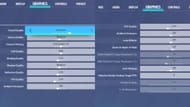Rainbow Six Siege developers replaced Vulkan API with DirectX 12 API during the Operation Twin Shells season. The decision came out of the blue and took the players by surprise, facing immense backlash from the community. This is because Vulkan was the better of the two APIs, having very low input latency and stable frame times when compared to its DirectX counterpart.
The developers decided to remove Vulkan so they could focus on optimizing the game as a whole instead of having to iron out issues caused by the presence of two different API models.
Moreover, Vulkan wasn't completely devoid of problems. For instance, the visual artifacting that was prevalent on this API during the release of Operation New Blood made players temporarily switch to DirectX. Subsequently, Ubisoft patched the issue with a Hotfix.
This article will talk about the DirectX 12 API and provide the recommended settings for it.
Looking for Crossword hints & solutions? Check out latest NYT Mini Crossword Answers, LA Times Crossword Answers, and Atlantic Crossword Answers
Note: After Vulcan was replaced by DX12, the developers removed DX11 support from Rainbox Six Siege with the release of Operation Prep Phase (Y10S1). Players can only use DX12 now, as Steam launch commands no longer work. Also, some aspects of this article are subjective.
Rainbow Six Siege replaces Vulkan: DX12 only API supported by game
Switching to DirectX 12 doesn't involve a manual process since the game no longer supports any other launch options (DX11 and Vulcan). When you boot up Rainbow Six Siege in Y10S1, the title runs on DX12 by default. This API offers new upscaling options in the Graphics Settings tab and also makes developing patches/hotfixes for the title easier.
Since Rainbow Six Siege X (launching on June 10, 2025) will only use DX12, having it as Rainbow Six Siege's core API will ensure it supports all the updates planned to be released after the aforementioned date.
Recommended settings for DX12

The best graphics settings recommended to use with DX12 for the best competitive edge and integrity are as follows:
- Texture Quality: Low
- Texture Filtering: Linear
- LOD Quality: High/Ultra
- Shading Quality: Low
- Shadow Quality: Medium/High
- Reflection Quality: Low
- VFX Quality: Low
- Ambient Occlusion: Off
- Lens Effects: Off
- Zoom-In Depth of Field: Off
- AMD FSR 1.0: Off (for 1080p)
- AMD FSR 2.0: Off (for 1080p)
- Anti-Aliasing: Off
- Render Scaling: Default (greyed out unless you're on 4K)
- T-AA Sharpness: Default (greyed out unless you're on 4K)
LOD (level of detail) and Shadows on Medium or High grant a competitive advantage. The former setting changes how far players can see properly rendered objects, while Shadows on medium or above enable dynamic shadows.
For players that use 1440p or 2160p resolutions, upscaling options can be enabled to improve FPS. Those on low-end systems can choose to disable Shadows if they are getting low FPS. Increasing the level of detail does not impact FPS and can be left on High if not Ultra.
Additionally, players getting more FPS than they need can crank up Texture Quality and Texture Filtering to High and 8x, respectively. Doing so will enhance the game's visuals.
Also read: Rainbow Six Siege X system requirements revealed for PC and console
Rainbow Six Siege replaces Vulkan: DX12 benchmarks
Although the newer API performed worse at launch compared to DX11 and Vulkan, Hotfixes and updates over the course of a year have optimized it. To indicate its improvement, we compared how DX12 performed in Rainbow Six Siege during Operation Twin Shells and Operation Prep Phase.

DX12 was tested on a 1080p system with the following specs:
- CPU: Ryzen 7 5700X3D
- GPU: AMD RX 7700 XT
- Memory: 32GB DDR4 3200MT/s
During Operation Twin Shells, running the game on DirectX 12 fetched a score of 398 (avg FPS). When the same API — as well as settings — was used in Operation Prep Phase, it generated 500 frames per second on average.
The removal of Vulkan back in Operation Twin Shells made it hard for players with low-end systems to run Siege at the same FPS that they were used to. Fortunately, Operation Prep Phase has seen a massive improvement in DX12 performance.
For more similar content, follow Sportskeeda:
- Rainbow Six Siege Cup (May 2025): Schedule, how to register, and more
- Ubisoft announces major restructuring of gaming division with Tencent following the launch of Assassin’s Creed Shadows
- Rainbow Six Siege X The Boys bundle: What's included, how to unlock, and price
- Rainbow Six Siege X system requirements revealed for PC and console
Are you stuck on today's Wordle? Our Wordle Solver will help you find the answer.
